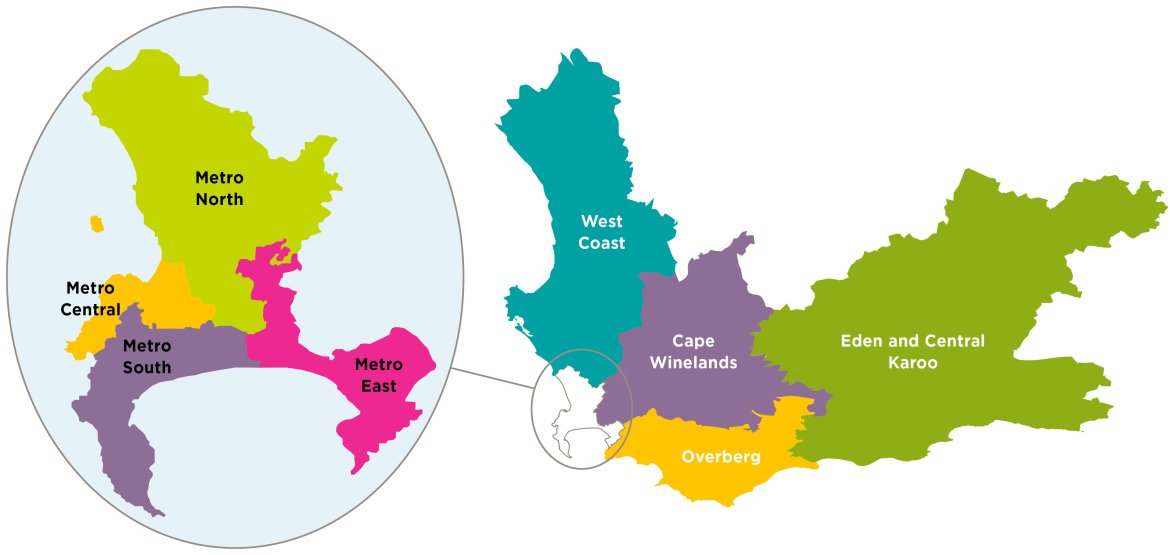WCED Districts in brief
The Western Cape Education Department (WCED) has eight districts, divided into 64 circuits.
- The circuit provides management support to ordinary public and special schools to ensure the delivery of quality education.
- The district works collaboratively with principals and educators in schools, with the vital assistance of circuit offices, to improve education access and retention, give management and professional support, and help schools achieve excellence in learning and teaching.
- The Head Office, based in Cape Town, is mainly responsible for research, policy development, strategic planning, coordination, monitoring and evaluation.
The eight districts facilitate an integrated approach to service delivery by all levels of government, in line with national policy.
The districts include four rural districts (West Coast, Cape Winelands, Eden and Karoo, and Overberg), and four urban districts (Metro North, Metro South, Metro East and Metro Central) - see map below.
Rural district boundaries are based on municipal boundaries, while urban district boundaries are based on those of city wards. The boundaries also allow for an equitable distribution of schools and resources across districts and circuits.
ORGANISATIONAL STRUCTURE OF A DISTRICT
The other functions of a district include:
- managing ordinary public and special schools within a circuit to be effective and efficient in order to deliver quality education.
- managing the district business planning, information management, school management and governance support, and people management within the district.
- managing, coordinating and supporting curriculum delivery at ordinary public and special schools.
- rendering learner support to ordinary public and special schools.
The circuit office supports, advises and builds capacity of governing bodies, principals and educators.
The Management and Governance component deals with the district business planning, information management, school management and governance support, and people management within the district.
The Curriculum Support component in the district advises schools on national and provincial curriculum policies and assists schools in implementing them appropriately. They also promote the effective training and development of educators and monitor, evaluate and support curriculum implementation. Furthermore, they facilitate and support the implementation of Information and Communication Technology at public schools. This component also promotes the establishment, development, administration and effective use of various school library models.
The Learning Support component facilitates and coordinates Specialised Education programmes including psychological, remedial and therapeutic services, social work and career guidance for all learners.


